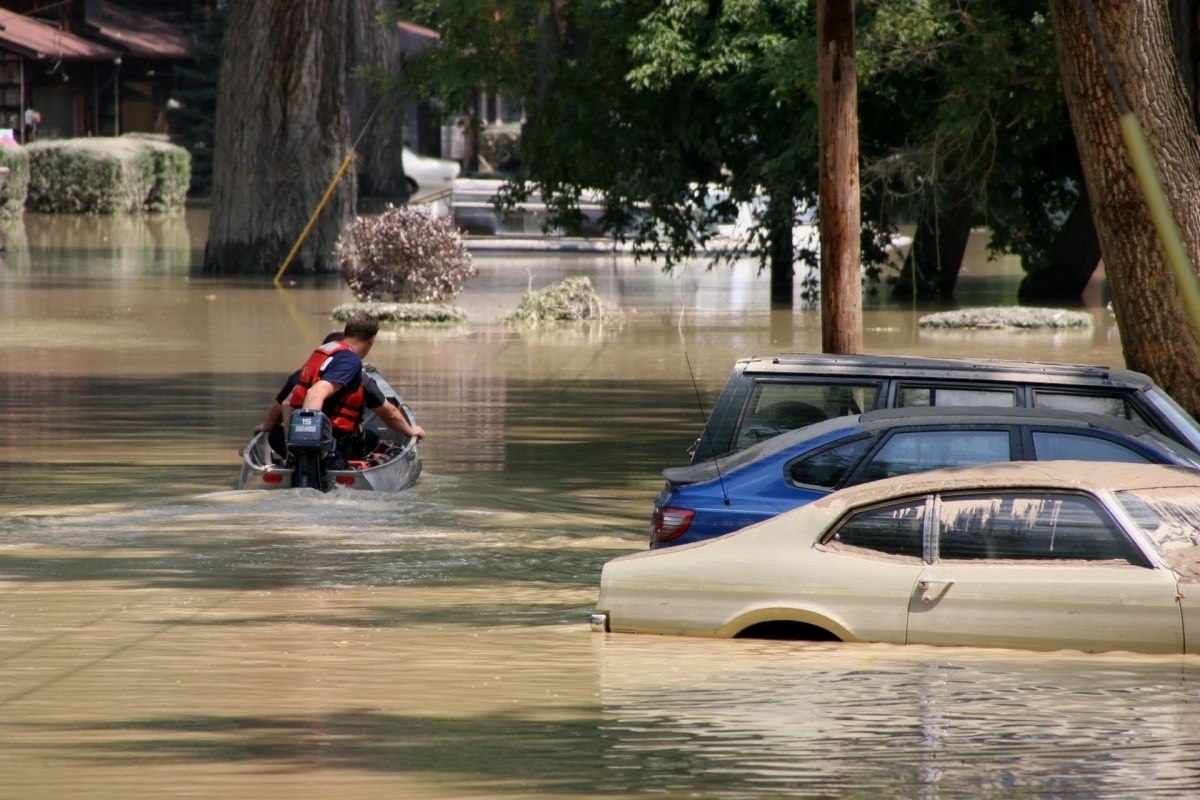Extreme weather events around the world are becoming more frequent and more intense, as our planet continues to overheat due to human-caused pollution. But as real as these consequences are, they can still be difficult for people to visualize until their communities have already been hit.
That's why Climate Central, a nonprofit focused on researching and bringing attention to the effects of our planet's changing temperatures, embarked on the FloodVision project.
FloodVision is a tool that, per the organization's website, "uses advanced data collection techniques, AI-based algorithms, and intuitive software to produce science-based augmented-reality photos of specific locations." In other words, it can show you what it's going to look like when flooding comes to your community.
This week, Climate Central published a compilation of annual coastal flood risk projections for 23 Atlantic Coast and Gulf Coast cities, along with the annual likelihood of flood levels reaching certain heights during flooding events, including hurricanes.
For example, Boston has a 13% annual likelihood of flood levels reaching four feet above the high tide line. New York has an 18% annual likelihood.
"As sea levels rise, driven by human-caused climate change, coastal flooding has become more frequent and costly," Dr. Daniel Gilford, Climate Scientist at Climate Central, told The Cool Down.
"The newly released report on Hurricane Ian, for example, illustrates the extreme costs that coastal flooding can impose: More than 150 lives were lost and there were around $113 billion in damages, and much of it was related to coastal flooding and storm surge," he continued. "As the hurricane season approaches, we wanted to highlight the coastal flood risks that exist now and are getting worse in the context of ongoing sea level rise."
Although some Boston residents might be surprised to learn that their homes have a 13% chance of flooding this year, for scientists who are used to analyzing this data, the report's findings were not shocking.
"People live preferentially near the coastlines, and climate change is ongoing. As a result, there are few surprises when we look at contemporary coastal flood risks," Dr. Gilford said. "We are already living with nearly 10 inches of global sea level rise since pre-industrial times, and as water levels rise the threats that additional water poses are increasing. We can expect these risks to increase in the future."
The idea behind the report, however, is not to make people give in to the idea of inevitable coastal flooding. The Climate Central team hopes that their work will convince people to take these risks seriously and begin preparing to mitigate them.
"[We hope] that our projections are useful for coastal communities, helping them visualize, contextualize, and evangelize the flood risks they face now (and will increasingly face in the future)," Dr. Gilford said. "Climate change is real and it is here already.
"Right now, billions of people around the world are experiencing weather events that have been influenced in some way by climate change," he continued. "While coastal flooding is only one expression of that change, it is critical to understand and assess, for the safety of our coastal infrastructure and the people who live in coastal communities."
Ultimately, Dr. Gilford said that the "most important thing any individual can do to address climate change is to talk more about climate change."
"Spread the news that our home planet is being poisoned, and we are the only ones holding the antidote. We must reduce our greenhouse gas [pollution]," he explained. "Tell your loved ones, tell your friends, tell people in your faith community or local cafe. Tell anyone and everyone who will listen: We will not be able to effectively limit ongoing climate change unless we all rally around a common goal to do so, and that requires awareness and prioritization."
Join our free newsletter for cool news and cool tips that make it easy to help yourself while helping the planet.









